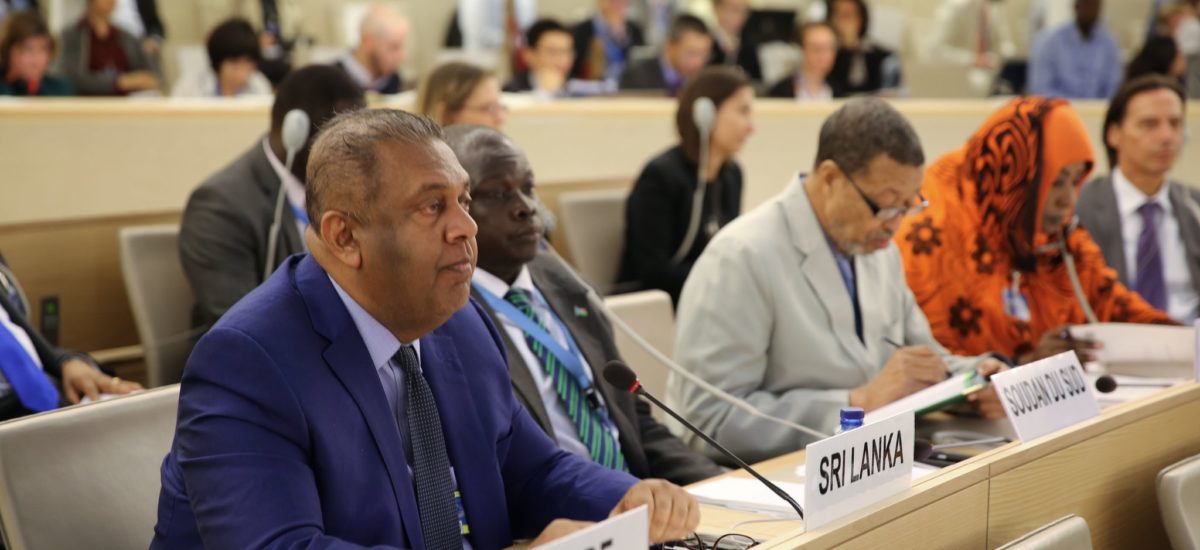Photo courtesy New York Times
January 2015 saw a momentous change in Sri Lanka. After nearly 10 years of increasingly authoritarian rule, a new government promising change was voted into office. The new government immediately set about righting many of the wrongs of the previous Rajapaksa government, including an openness toward independent domestic organizations and the international community. As a clear marker of the sea change, the new government agreed to key undertakings on transitional justice issues at the United Nations Human Rights Council last October.
One area of progress has been the way the government handled consultations on constitutional reforms. Those consultations, conducted seemingly seamlessly and transparently, took place over the course of two months earlier this year and were generally regarded by activists as successful. Yet significant challenges remain for making the momentous changes that could address the drivers of the country’s long civil war.
The government for example has made less progress toward fulfilling the resolution agreed to at the Human Rights Council, a process that remains shrouded in secrecy. While the government has engaged in a public consultation process, it has appointed a more private working group to implement the “four pillars” of the resolution – truth, justice, reparations, and guarantees of non-recurrence.
There are rampant rumors about who is in the working group, what it is doing, and the reach of its mandate. These rumors are fueled by the lack of any public statement from the government about the group’s membership and its terms of reference. With less than two months to go before the next Human Rights Council session, it is critical for the government to be more open about who the members are and what they have been doing. Even some international bodies that are supposed to be engaging with the working group say that they do not have the most basic information about its structure.
The same is true of other developments related to the UN resolution. While public consultations on the “four pillars” are to be open, the workings of the task force appointed to conduct them remains opaque. The mandate and the members of the task force and its various advisory and other organs were made public only after a long delay, well after news of its establishment entered the rumor mill. The reasons for the consultations’ delays are not known; speculation now is that they will begin in May and end in August.
The government has tried hard to build a new well of trust and goodwill after years of intransigence from the Rajapaksa government. As the next UN discussion in June approaches, it is critical for the government to confirm publicly the steps it has taken toward delivering on its promises. Failure to do so has already eroded the trust of some segments of society, particularly Tamil and Muslim groups in the north and east. The government would do well to wipe away the fog of rumor and make clear public statements about what it is doing – and how – to implement its obligations.
Brad Adams is Asia director at Human Rights Watch.

